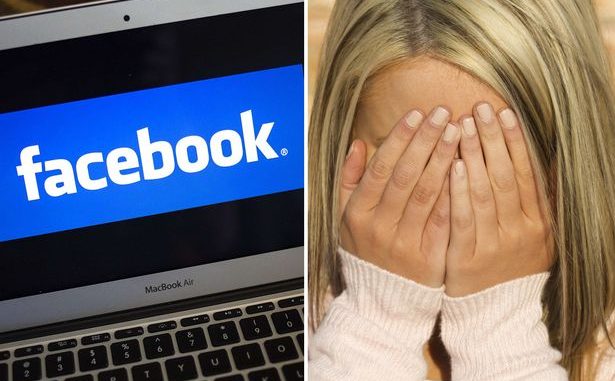
A libel lawyer has warned that Facebook could face legal action from victims of revenge porn after the company reached an out-of-court settlement with a teenage girl in Northern Ireland.
Paul Tweed said he had been “deluged” with inquiries after the settlement with the 14-year-old girl.
She sued Facebook after a man allegedly posted a naked photo of her on a so-called “shame” page.
Facebook has said it takes the issue of revenge porn seriously.
It said it has developed tools to tackle the problem.
The court was told that the case was the first of its kind in the world.
The girl sued Facebook for damages, alleging misuse of private information, negligence and breach of the Data Protection Act.
Following out-of-court negotiations, she agreed to a confidential settlement with Facebook, which included her legal costs.
Facebook did not admit any liability in the case.
Mr Tweed, who is based in Belfast, said the issue of revenge porn was a “major social problem which, unfortunately, the law as it currently stands is not geared up to deal with”.
“We’re seeing considerable increase in the number of people that are receiving threats of publication of inappropriate photographs and images,” he told BBC Radio 4’s Today programme.
“The difficulty we have in these cases is that I would like to be able to say to them, ‘look, there’s not a chance that Facebook, or any of the social networking giants, will allow publication of such photographs or images’.
“I can’t do that. And the difficulty here is that once publication has been made, it’s often too late.
“In a matter of minutes, these images can be disseminated to thousands of people and, unfortunately, it has the net result of destroying lives.”
Mr Tweed said that the two-year-long legal case illustrated the “difficulty of bringing these cases where time is of the essence”.
He added that Facebook had the technology to remove photographs, referring to a case in which the social media company removed an iconic image of a girl fleeing a Napalm attack during the Vietnam war on the grounds of nudity.
Mr Tweed also said that a scheme trialled in Australia, which involves naked images voluntarily being sent to Facebook for removal, was not sufficient.
“Realistically, who is going to be comfortable sending the actual image that they are gravely concerned about to Facebook in those circumstances?”
Conservative MP Ed Vaizey, a former minister for culture and digital economy, said that politicians should not “shy away” from introducing legislation to deal with the issue.
“Facebook and a lot of tech companies have the power to combat these images and they need to act,” he said.
“That’s why, for example, Matt Hancock, the new secretary of state, talked about a charter of digital rights.
“More and more people are talking about the fact that social media companies have to take responsibility and, if not, there should be legislation and certainly recourse in court.”
Analysis
By Amol Rajan, BBC media editor
This legal case comes amid noisy debate about whether social media companies are platforms or publishers.
The truth is they have elements of both and the debate over the legal obligations of these new kinds of company have often failed to keep pace with their own innovations.
Nevertheless, the case of this Belfast teenager does seem to have opened up the possibility that current laws could be more widely used to obtain damages from the tech giant.
Source: bbc.co.uk






Be the first to comment